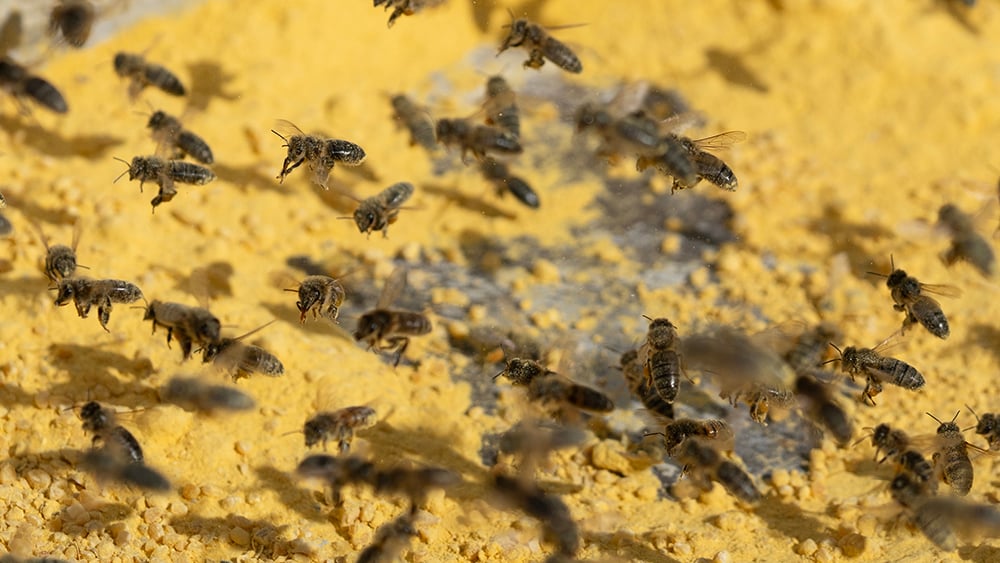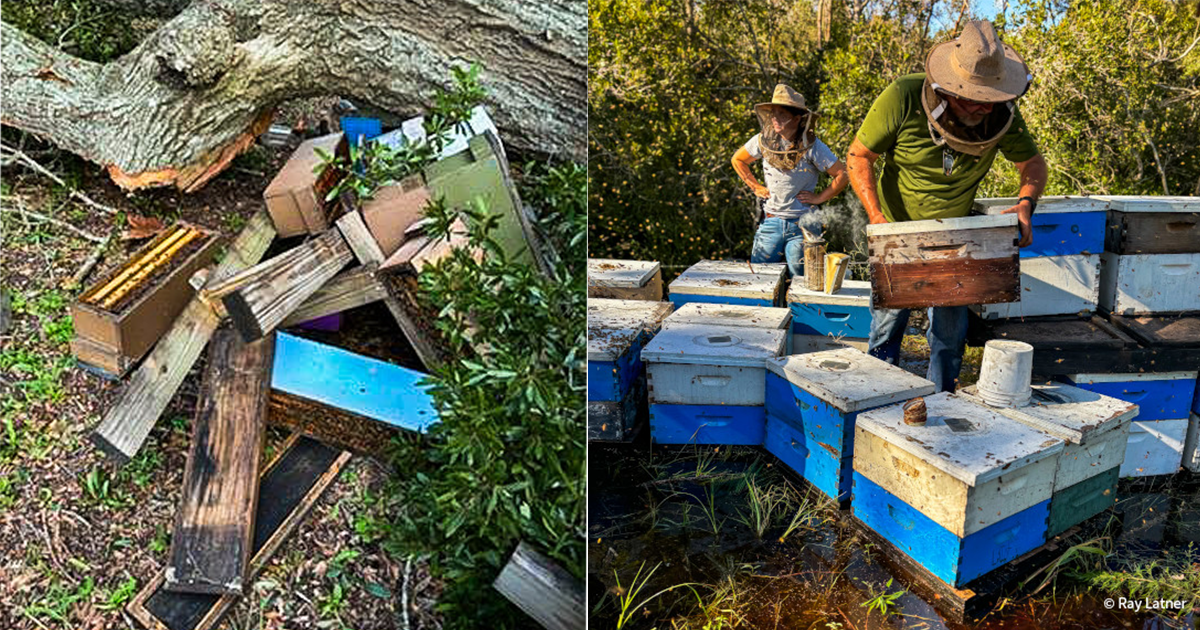Saving the Bees: Working With Mann Lake to Protect Our Pollinators
A Threat to Pollinators — and Our Food Supply
The aftermath of Hurricanes Helene and Milton left an urgent crisis in its wake for bees across the Southeast. The storms destroyed vast areas of natural forage, leaving countless bee populations without the food they need to survive. Without immediate intervention, these pollinators face starvation — a loss that would ripple across our food systems, threatening crop pollination and food security.
Greater Good Charities Steps In with Lifesaving Support
In response, Greater Good Charities has partnered with Mann Lake to deliver emergency resources to impacted bees and beekeepers. Together, we’re distributing bee pollen substitute and syrup to provide crucial nourishment for these pollinators as they work to rebuild their hives and regain strength. This emergency feeding effort will help sustain bee populations as they await for the natural forage that was lost in the storms to regrow.
Why Bee Survival Matters to Us All
Bees play an irreplaceable role in pollinating our food crops. In fact, one in every three bites of food we eat is connected to bee pollination. Without bees, our food supply would suffer — fruit, vegetable, and nut crops would all see dramatic declines and certain crops would become unaffordable for many consumers. By supporting these pollinators now, we’re investing in the long-term health of our food systems and ecosystems.
Help Us Keep Bees and Our Food Systems Thriving
Bees may be small, but their impact is enormous. Greater Good Charities is committed to keeping these essential pollinators fed and healthy in the wake of disaster, but we need your help to continue this mission. Join us in providing bees the resources they need to survive and protect our food supply.
Make a Difference for Bees Today
Your support can help sustain bee populations through this critical time. A donation today ensures these pollinators—and our food systems—can recover. Together, we can make an impact for the bees, beekeepers, and the future of our food.


